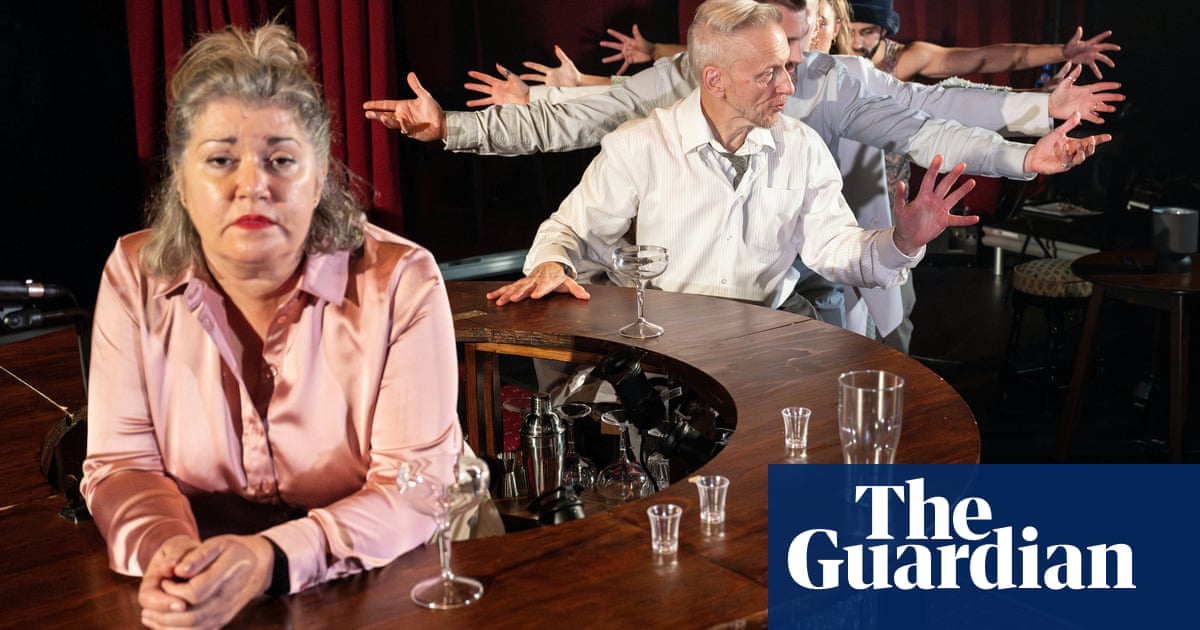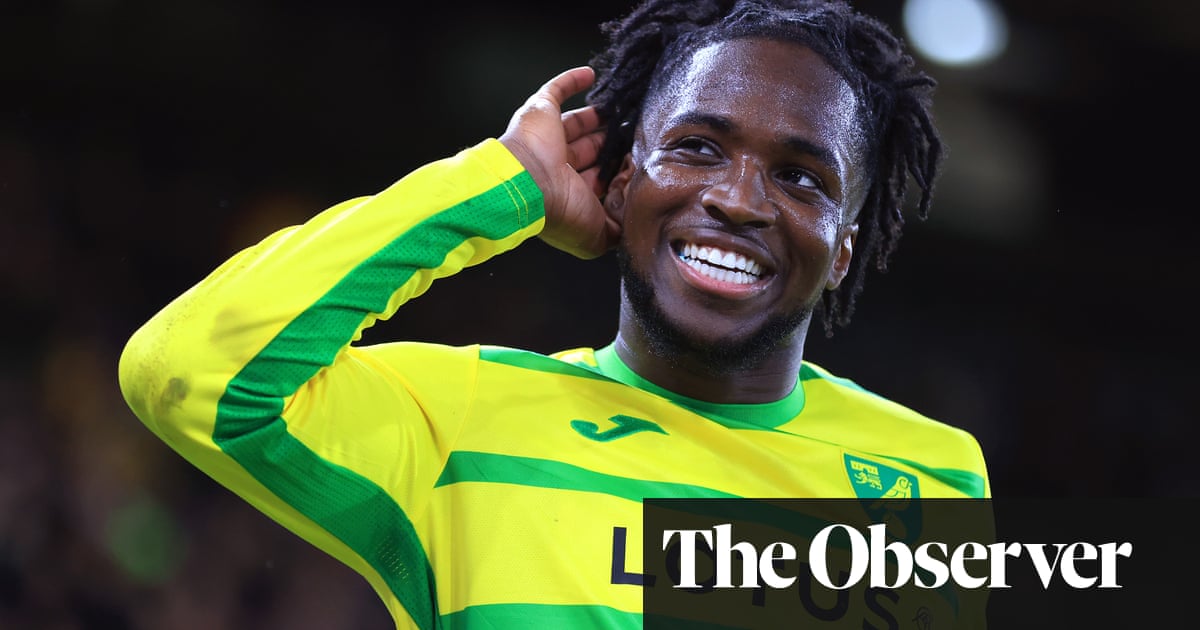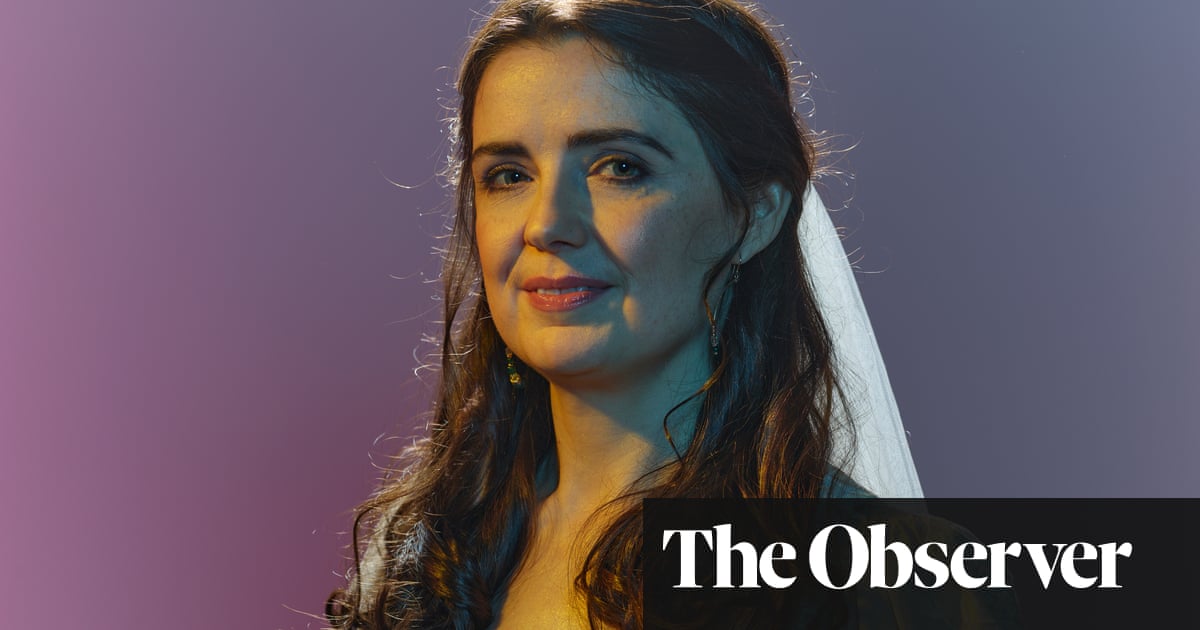
Rhiannon Faith has built her own pub. Or her set builders have. Installed inside a theatre, this is where she is going to stage her new show. “It’ll probably go in my mum and dad’s back garden when we’re finished,” she smiles. As pubs often are, this one will be the setting for people to confess their secrets, and a place where a lonely person can find some solace.
Faith makes dance-theatre with a social conscience that peers into everyday lives, often those on the margins. Her last work Drowntown (which has just toured to China) was about poverty and isolation, and built on interviews with people in deprived English coastal towns. In 2018, Smack That (a Conversation) told stories of domestic abuse, set at a party with popcorn and pass-the-parcel. Her previous work has dealt with mental health, including Faith’s own.
After Drowntown’s bleakness, Faith’s cast made a request. “The dancers did say, ‘can we have a bit more humour in this one, Rhiannon!’” she laughs. Lay Down Your Burdens promises some light alongside the darkness.
Last year Faith ran The Care House Project in Harlow, Essex (she’s associate artist at the Harlow Playhouse), where anyone could come and talk about their lives. They made a performance, and the group have stayed in touch. One of the men had been homeless, now he writes poetry and comes to see Faith’s work-in-progress. Faith doesn’t just talk about community-building, she does it. The experience of the Care House led to Lay Down Your Burdens, looking at the baggage people carry, the shame, trauma and anxiety. “Often it’s because that person’s not received enough care in their life,” says Faith. “They haven’t been valued or felt they’ve belonged. They’ve spent their life trying to cope with trauma, or living in poverty each day just trying to meet their basic needs and there’s no way they could feel safe.”
Faith suggests that “a lot of people who live at the bottom of the hierarchy of society feel more like they’re being watched than being seen”. She wants us to see some of those stories and characters for who they really are, using her usual mix of text, testimony, movement that delves into emotions, humour and some audience participation. “Get us all making noise together, laughing together, feeling emotional together,” says Faith. The audience will be seated in the round, and on bar stools in the “pub” for the brave. “It’s an invitation,” she says. “You don’t have to take part if you don’t want to.” Faith’s own energy is the kind that can get people to open up.
As a child growing up in the West Midlands, she was “always spinning and moving”. A PE lesson where they got to do a Janet Jackson routine was her best day ever. She went to local dance classes but was put off by other girls’ snobby remarks. “I didn’t have the right stuff. It was all to do with money.” But she was obsessed with films, spending summers at a friend’s house with a huge video collection, rewinding VHS tapes to write out the scripts by hand. She took one to school. “I went to the headteacher with a suggestion: We should put on Gypsy!” she remembers, “which is a bit inappropriate now I think about it. I was probably 10 or 11.”
She comes from a big Irish Catholic, working-class family; her dad wrote novels and protest songs, her uncle penned contentious plays about Irish politics, but neither had the opportunity to made a living out of it. “It’s a privilege for me to be here doing this,” says Faith, 40, who after years of hustling and day jobs has recently been granted Arts Council England National Portfolio Organisation status, meaning a three-year grant. With an aunt involved in trade unions, and a sister now a human rights lawyer, activism is in the blood but she was always drawn to performance. “It’s just what’s inside me, it’s just how I think,” she says.
Faith was lucky to have a great performing arts teacher at college who would ask students to do things like spend two weeks creating and acting out a new society. Not so different from what she does now, trying to imagine a different, kinder world. “I’d like to change the idea that there’s a world where people don’t have hope because of their situation,” she says. “It feels unacceptable to me that anybody walks through this life without feeling like they matter. What if we had this circle of compassion and no one stood outside that circle? What if we said that was not an option, what would that look like?” Faith admits she doesn’t have the answers, but she’d like you to pull up a bar stool and join the conversation.
Lay Down Your Burdens is at the Barbican, London, 21-25 November












